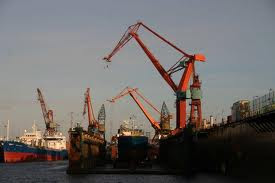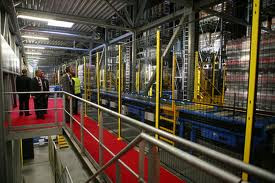

The Munich Trade Fair Centre will see an influx of visitors between the 12th and 15th of May 2009 with the upcoming international exhibition for logistics, telematics and transport. This years Transport Logistics Exhibition had attracted over 1,500 exhibitors from 57 different countries who were left impressed with the platform's magnetism drawing almost 47,000 trade visitors from 118 countries. The 2009 Annual Transport Logistic Exhibition is expected to be an even bigger success.
The Transport Logistics expo has played the role of the world's largest exhibition for the transport, logistics and telematics sector. The event also acts as a meeting ground for highly influential giants in the industry who contribute innovative products and provide solutions to industry issues.
The highlights of this much talked about event are both the huge spectrum of exhibits that it has on offer as well as the presence of an audience full of international professionals and market leaders. While the fair has an essential purpose of presenting practical solutions to the transportation's complex sector, it also opens out the huge network of transport systems, telematics and logistics under one roof.
The venue, the Munich Trade centre is well equipped with modern technological infrastructure and is known for its flexibility and state-of-the-art presentation technology that ensures exhibitors and visitors of a pleasant experience with no inconveniences.
Both exhibitors and visitors need to worry about transportation hassles as Munich is in the heart of Europe and has excellent infrastructure that ensures easy and quick accessibility. The Munich Airport is at a distance of thirty minutes by car from the venue, while the Hauptbahnhof Main Railway Station connects to the Trade centre via an underground system and is a twenty minute journey. Munich is known for its efficient local public transport system, making transportation the last thing that could create problems for visitors to the Annual Transport Logistic Exhibition in the city.
Accommodation is also well-cared for by the city of Munich which has a wide range of hotels and guesthouses providing visitors with different options in terms of both luxury and cost. While the city is full of functional, service oriented and budget friendly hotels, it is also home to internationally known luxurious five star hotels like the Le Meridien and the Mandarin Oriental.
The Transport Logistic Exhibition has been a preferred destination for hundreds of exhibitors and thousands of visitors as a result of the infallible reputation it has built over the years. The event has seen many exhibitors coming back to launch new products and diversify as well as develop their customer base. The fair has also seen tremendous growth in numerical terms. No wonder then, that it has seen rapid bookings for its upcoming May 2009 fair by loyal and new exhibitors who now have a chance of combining work with leisure in the beautifully sophisticated city of Munich!
A Guide to the Ship and Port Qatar Exhibition
The Ship and Port Qatar Exhibition is expected to create waves of success in the Middle East and Asia between the 5th and 7th of May 2009 at the Qatar International Exhibition Centre, Doha. Being the third International Ship Building, Port and Marine Technology Exhibition and Conference for these regions, the event has slowly yet successfully made a name for itself in the international markets.
The exhibition will be customized to cater to international manufacturers who are looking into entering the fast growing and demanding markets of the Middle Eastern Regions. An essential factor that defines this event is that it is open only to trade visitors, thus ensuring exhibitors' interaction with genuine visitors.
The Ship and Port Qatar event will act as a platform for exhibitors who can display their latest innovations and offer their updated services to the eastern markets. Exhibitors also get a chance to foray into new markets via a trusted platform that has an enormous network of visitors including key decision makers with high purchasing power.
While it would not be true to say that Doha's infrastructure meets the standard of other global cities, it would be unfair to call it inefficient. Connected to the world by the Doha international Airport which is Qatar's only international airport; Doha is known for its excellent road network and has an extensive bus system. However, the preferred mode of transportation is usually taxis and cars which shuttle from the airport to the Qatar International Exhibition Centre as well as take visitors around the city at reasonable rates.
Also, the city of Doha is home to some renowned hotels like The Ritz-Carlton, Marriott and Ramada Plaza, providing international citizens with world-class luxury. Visitors who prefer more cost friendly alternatives need not worry as Doha also has hotels starting at low-prices yet ensuring prompt services and facilities.
Testament to its genuine services, diverse market power and positive response, 96% of previous exhibitors from the 2007 event have confirmed their comeback as participants in the next event scheduled for 2009. Earlier exhibitors were left speechless with the high-quality visitors that attended the event and with the local business potential which the event was capable of offering. Several satisfied exhibitors claimed that the Ship and Port Qatar expo was their best experience in Middle East maritime exhibitions.
www.made-from-india.com offers solutions that help companies to improve bottom-line operational efficiency and meet new performance objectives. The exclusive database covers information about Logistic & Transport services in India, Logistic & Transportation Products in India, exporters of Logistic & Transportation Accessories, Logistic & Transportation products importer, Logistic & Transportation supplier, Logistic & Transportation manufacturers, & Wholesalers, logistics services in India, and customized global transportation.



































